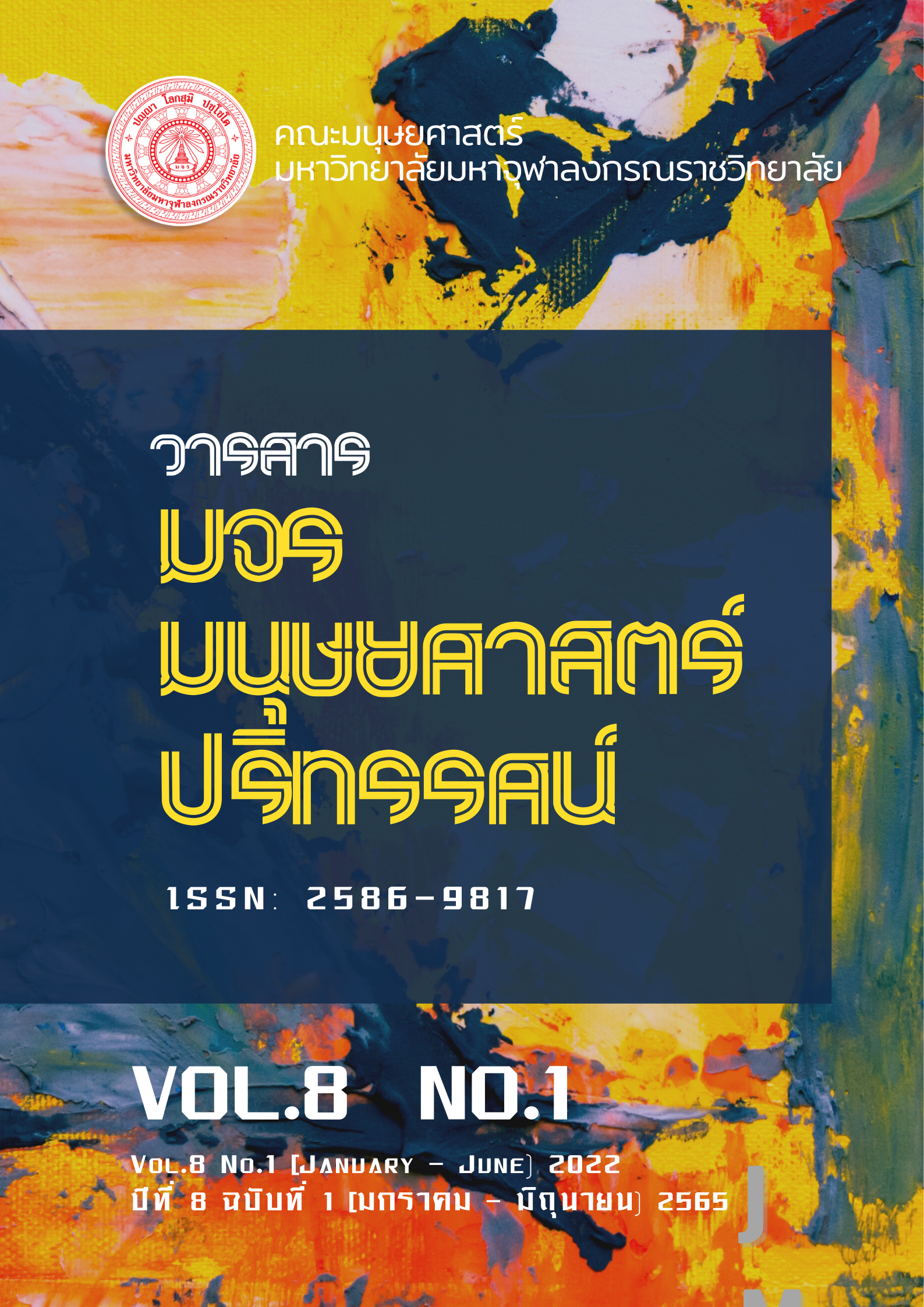ก้าวสู่สูงวัยใจแกร่ง เติมพลังชีวิตที่มีคุณค่าด้วยพุทธจิตวิถี
คำสำคัญ:
สูงวัย, พลังชีวิต, ุพุทธจิตวิถีบทคัดย่อ
ปัญหาที่สำคัญเมื่อเข้าสู่ความเป็นผู้สูงอายุ คือ ปัญหาทางด้านจิตใจ การเปลี่ยนแปลงด้านจิตใจเป็นปัญหาที่มีผลต่อเนื่องเชื่อมโยงมาจากการเปลี่ยนแปลงด้านร่างกายและสังคม เพราะการเปลี่ยนแปลงจากการเจ็บป่วยทางกาย การหลงลืมและการคิดอ่านช้าลง มีความรู้สึกสูญเสียความสามารถของตนเองในการทำกิจกรรมประจำวันต่าง ๆ รู้สึกว่าตนเองไม่มีคุณค่า การขาดติดต่อไปมาหาสู่กับเพื่อนฝูง หรือ ครอบครัวบุตรหลานแยกย้ายกัน เกิดความรู้สึกเหงา รู้สึกว่าตนเองถูกทอดทิ้ง ทำให้ผู้สูงวัยมักมีอารมณ์แปรปวน โกรธ หงุดหงิดง่าย จนเกิดภาวะความเครียด วิตกกังวล ซึมเศร้า กลายเป็นปัญหาทางสุขภาพจิต บทความนี้จึงนำเสนอแนวคิดและวิถีทางเพื่อป้องกันการเกิดปัญหาเหล่านี้เมื่อก้าวสู่ความเป็นผู้สูงวัยและให้ความเข้าใจเกี่ยวกับพัฒนาการและภาวะสุขภาพจิตของผู้สูงอายุ ส่งเสริมการเรียนรู้ การมองเห็นคุณค่าในตนเอง และความภาคภูมิใจ เพื่อเกิดพลังของผู้สูงอายุอย่างมีคุณภาพ ที่เรียกว่า “พฤฒิพลัง” ซึ่งมีองค์ประกอบสำคัญได้แก่ 1. การมีสุขภาพดี 2. การมีส่วนร่วม 3. การมีหลักประกันความมั่นคง และนำแนวทางพุทธจิตวิถีมาช่วยเสริมสร้างสุขภาวะพลังชีวิตที่มีคุณค่าในการดูแลสุขภาพทั้งทางกายและจิตใจเพื่อเตรียมตัวเป็นผู้สูงอายุที่มีสุขภาพกายและจิตที่ดี โดยใช้หลักพละ 5 ได้แก่ ศรัทธา วิริยะ สติ สมาธิและปัญญา ทำให้เกิดพลังความเชื่อมั่นในสมรรถภาพที่ดี มีความเพียรมุ่งมั่นพัฒนาจิตให้ดีตั้งแต่วัยทำงาน ด้วยการฝึกสติ มีสมาธิ สะสมพลังจิตให้แข็งแกร่ง เกิดปัญญา รู้เท่าทันสภาวะทางร่างกายและอารมณ์ใจที่เกิดขึ้น สร้างทักษะการคิดเชิงบวกในการปรับตัวกับสถานการณ์เปลี่ยนแปลงต่างๆ ทำให้เกิดการตระหนักรู้ ความทรงจำ พฤติกรรมการแสดงออกที่ดี ผู้สูงอายุจะมีพลังเกื้อกูลชนรุ่นหลัง สามารถดำรงชีวิตตามแนวพุทธจิตวิถีอย่างมีคุณค่า
เอกสารอ้างอิง
กรมสุขภาพจิต. (2563). ก้าวย่างของประเทศไทย สู่สังคมผู้สูงอายุอย่างสมบูรณ์แบบ. สืบค้น 24 พฤศจิกายน 2564, จาก https://www.dmh.go.th/news- dmh/view.asp?id=30476
เจียรนัย ทรงชัยกุล. (2546). การวิจัยเพื่อพัฒนาคุณภาพชีวิตของผู้สูงอายุในสังคมไทยด้านสุขภาพกาย สุขภาพจิต (รายงานการวิจัย). นนทบุรี. มหาวิทยาลัยสุโขทัยธรรมาธิราช.
ทักษิกา ชัชวรัตน์ และ สุภาภรณ์ อุดมลักษณ์. (2560). การพัฒนาแนวทางการส่งเสริมการดำรงชีวิตอย่างมีคุณค่าของผู้สูงอายุ. วารสารเครือข่ายวิทยาลัยพยาบาลและการสาธารณสุขภาคใต, 4(3), 176-188.
นันทนา วงษ์สวัสดิ์, สิริวัฒน์ ศรีเครือดง และ ประยูร สุยะใจ. (2564). การพัฒนาโปรแกรมการฝึกโยคะอาสนะตามแนวพุทธจิตวิทยาเพื่อเพิ่มพฤฒิพลังในผู้สูงอายุ. วารสาร มจร อุบลปริทรรศน์, 6(1), 428-441.
พุทธชาติ แผนสมบุญ, กมลาศ ภูวชนาธิพงศ์, สุวัฒสัน รักขันโท และคณะ. (2561). กระบวนการเสริมสร้างภาวะพฤฒิพลังในผู้สูงอายุ. วารสาร มหาจุฬานาครทรรศน์, 5(2), 268-282.
สมเด็จพระพุทธโฆษาจารย์ (ป.อ.ปยุตฺโต). (2563). พุทธธรรม (ฉบับปรับขยาย) (พิมพ์ครั้งที่ 54). กรุงเทพฯ : สํานักพิมพ์ผลิธัมม์.
สุชาติ หล้าอภัย. (2559). การประยุกต์ใช้มหาสติปัฏฐานเพื่อพัฒนาคุณภาพชีวิตผู้สูงอายุ. วารสารธรรมทรรศน์, 16(2), 76.
Erikson, E. H. (1968). Identity, youth, and crisis. New York, NY: Norton.
Mahidol University, Institute for Population and Social Research. (2019). Phawa sung wai khong prachakon [Elderly condition of the population]. สืบค้น 24 พฤศจิกายน 2564, จาก http://www.ipsr.mahidol.ac.th/ipsrbeta/th/ResearchClusters.aspx?ArticleId=46
Nguyen, C., Leanos, S., Natsuaki, M. N., Rebok, G. W., & Wu, R. (2018). Adaptation for Growth Via Learning New Skills as a Means to Long-Term Functional Independence in Older Adulthood: Insights From Emerging Adulthood. NC : Oxford University Press.
Tungkunanan P.The Lifelong Learning for Thai Society to Ageing Society. (2014). Journal of Technical Education Rajamangala University of Technology Thanyaburi, 2(1), 1-8.
World Health Organization. (2002). Active Ageing: A Policy Framework. Geneva: World Health Organization.

ดาวน์โหลด
เผยแพร่แล้ว
รูปแบบการอ้างอิง
ฉบับ
ประเภทบทความ
หมวดหมู่
สัญญาอนุญาต
ลิขสิทธิ์ (c) 2022 วารสาร มจร มนุษยศาสตร์ปริทรรศน์

อนุญาตภายใต้เงื่อนไข Creative Commons Attribution-NonCommercial-NoDerivatives 4.0 International License.





